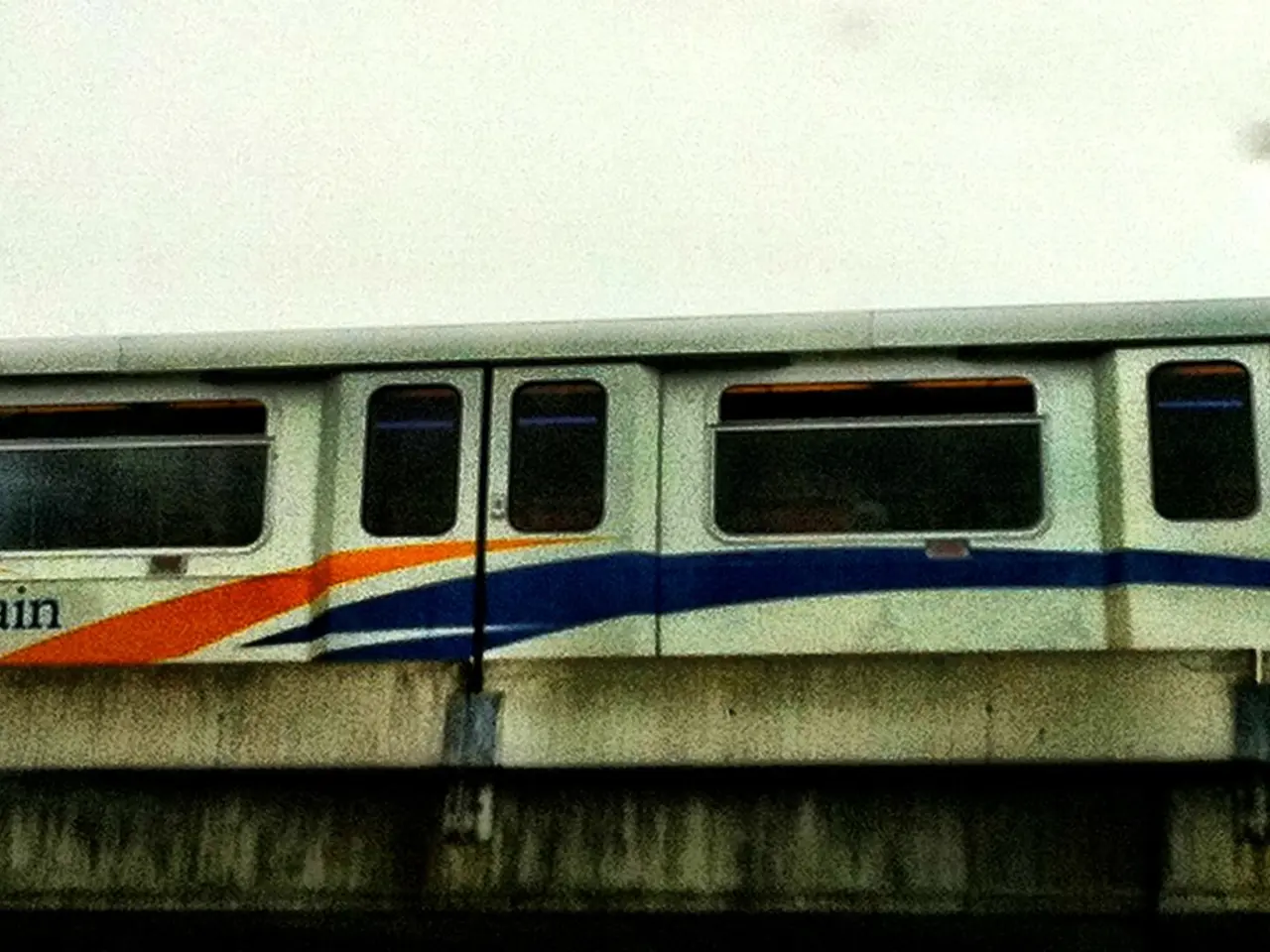Reinstatement of Transport Link Between Koblenz/Cologne and Bremerhaven Via Bremen Announced - City of Bremerhaven and Mobility Senator Express Disappointment over Deutsche Bahn's Decision
The city of Bremerhaven is facing a setback following Deutsche Bahn's decision to discontinue the InterCity (IC) line that served the city directly. This move has limited long-distance rail options for Bremerhaven, primarily due to ongoing infrastructure challenges and rail congestion around Hamburg and the northern German ports [1][2].
Currently, there is no direct comparable long-distance passenger rail service explicitly replacing the IC line to Bremerhaven. However, travelers might consider alternative transportation modes or connections such as:
- Regional trains combined with connections from Hamburg or Bremen: Passengers can travel from Bremerhaven to Hamburg (or Bremen) by regional trains and then transfer to long-distance trains serving other destinations.
- Bus or coach services: Long-distance buses connecting Bremerhaven to major cities may fill some gaps when direct rail options are unavailable or suboptimal.
- Rail freight service adjustments do not imply new passenger routes; the focus on freight transport in the northern corridor might continue to constrain or delay service improvements for passengers [1][2].
It's worth noting that while new intermodal hubs and routes are expanding elsewhere in Europe, these developments do not directly improve passenger rail to Bremerhaven [5].
Mayor of Bremerhaven Melf Grantz finds Deutsche Bahn's decision unacceptable and incomprehensible. He demands not only the reversal of the current rail decision but also a significantly improved connection of Bremerhaven to long-distance traffic. The IC line, which ran from Koblenz/Cologne via Münster, Osnabrück, Bremen, and Osterholz-Scharmbeck to Bremerhaven, was introduced at the end of 2021 but was regularly canceled due to lack of personnel or technical problems [1][2].
Dr. Ralph Baumheier, State Secretary at the Senator for Construction, Mobility, and Urban Development, shares similar sentiments, considering the loss of the direct connection a setback for Bremerhaven. Both the city of Bremerhaven and the mobility department hope to find viable solutions to reintegrate Bremerhaven more strongly into the long-distance network [1][2].
Mayor Grantz believes that instead of solving problems with a red pen, the rail authorities should better investigate the reasons for the sluggish demand. He emphasizes the need for a regular ICE connection for efficient and comfortable travel for Bremerhaven's citizens. Deutsche Bahn has stated that the decision to discontinue the IC connection was made due to the line not reaching the expected passenger demand, despite an extension of the test period [1][2].
The state secretary plans to continue the dialogue with Deutsche Bahn to find alternative solutions for a long-term and sustainable long-distance connection from Bremerhaven. Under these circumstances, Mayor Grantz believes there can be no talk of a serious test phase with reliable figures. The discontinuation of the Intercity connection leaves a region significantly dependent on tourism isolated from long-distance traffic [1][2].
The lack of a direct long-distance passenger rail service in Bremerhaven has necessitated an exploration of alternative means of transportation within the city. This exploration compels the consideration of regional trains combined with connections from Hamburg or Bremen, long-distance buses connecting Bremerhaven to major cities, or adjustments in rail freight services.
Bremerhaven's mayor, Melf Grantz, demands a significant improvement in the city's connection to long-distance traffic, arguing that the discontinuation of the IC line has left the region reliant on tourism isolated from public-transit options, particularly long-distance rail.




